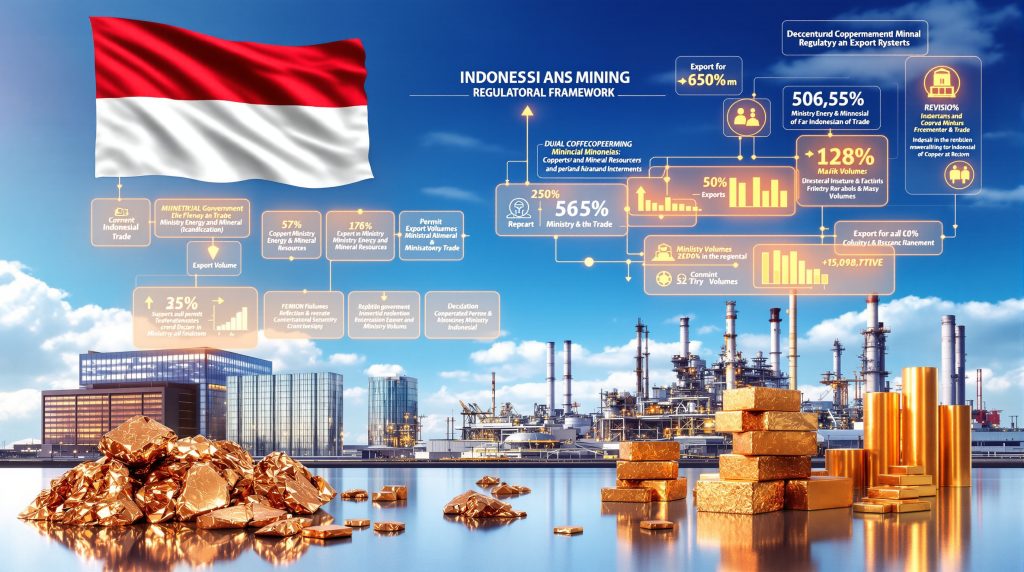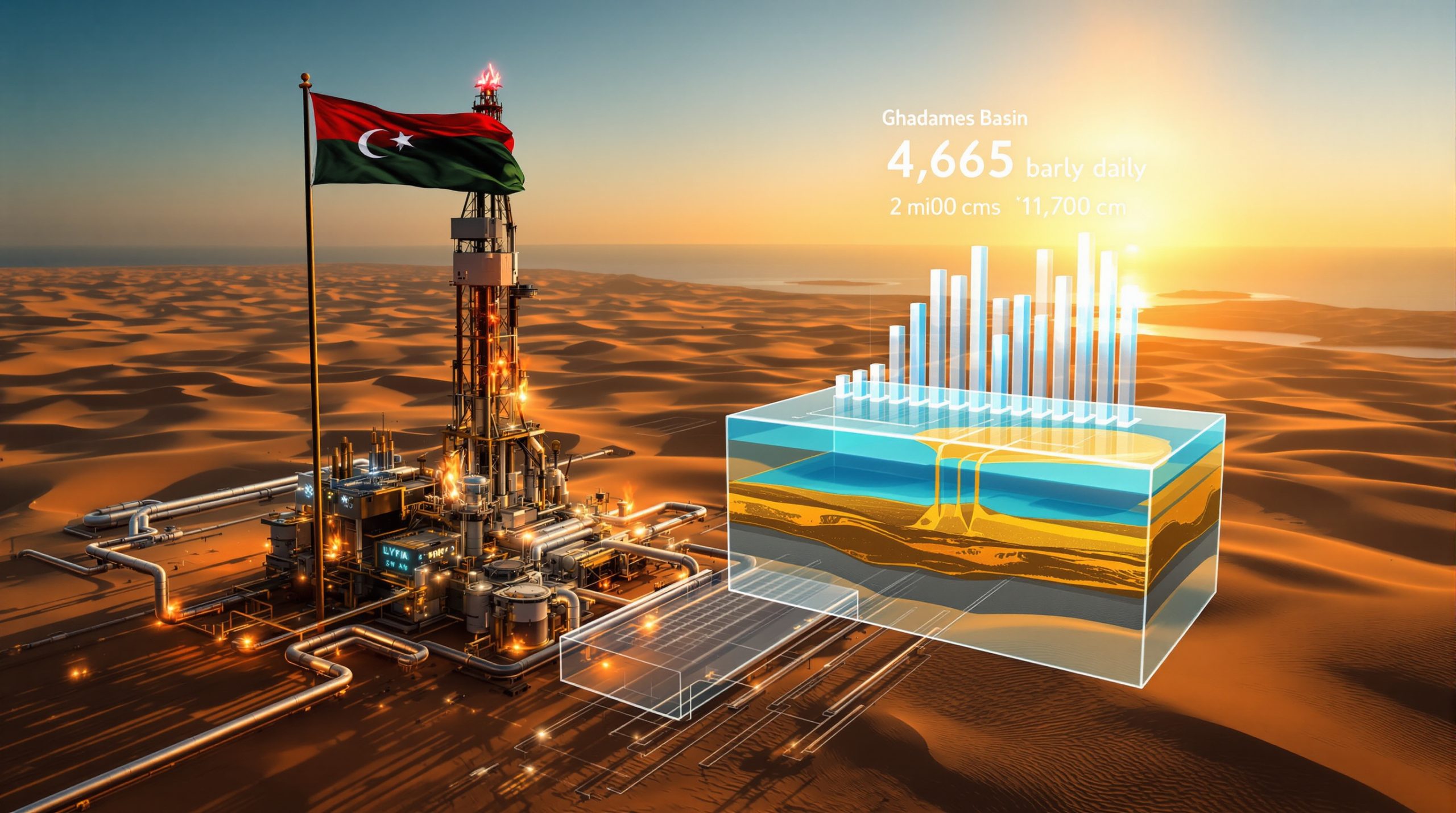Indonesia operates one of the world's most sophisticated mineral export regulatory systems, requiring coordination between two distinct government bodies for copper concentrate export approvals. The Amman Mineral export permit approval process exemplifies this complex framework, where the Ministry of Energy and Mineral Resources handles technical assessments and provides initial recommendations, while the Ministry of Trade issues final export permits and oversees compliance verification.
This dual-ministry structure ensures comprehensive evaluation of mining operations, examining everything from technical capabilities to trade compliance requirements. The framework reflects Indonesia's strategic approach to balancing resource extraction with downstream processing objectives, creating multiple evaluation layers for export authorization requests.
Key Regulatory Bodies and Their Roles
The Ministry of Energy and Mineral Resources evaluates technical capacity, smelter operational status, force majeure circumstances, and domestic processing constraints. Their assessment typically requires 30-60 days for complex applications involving equipment failures or operational disruptions, reflecting the intricacies of mining permitting basics.
The Ministry of Trade processes formal export applications, issues the Export Approval Letter (SPE), calculates export duties, and monitors compliance verification. Trade Ministry processing requires 14-30 days post-recommendation, though timelines may extend for cases requiring additional documentation or force majeure verification.
Indonesian Mining Export Authority Structure:
| Ministry | Primary Responsibilities | Decision Timeline |
|---|---|---|
| Energy & Mineral Resources | Technical assessment, smelter evaluation, force majeure verification | 30-60 days |
| Trade | Final permit issuance, export quota allocation, compliance monitoring | 14-30 days post-recommendation |
How Amman Mineral Secured Energy Ministry Backing
Amman Mineral successfully obtained Energy Ministry endorsement for exporting 480,000 dry metric tonnes of copper concentrate through a force majeure claim during October 2025. This legal mechanism allows companies to bypass standard export restrictions when facing circumstances beyond their control, specifically addressing equipment failures that prevent domestic processing.
The company submitted comprehensive documentation including technical assessments and operational reports to substantiate their smelter damage claims. The flash converting furnace and sulfuric acid plant failures created operational bottlenecks that threatened the company's ability to process raw materials domestically, necessitating export authorization to maintain operational continuity.
The Force Majeure Declaration Process
The force majeure mechanism serves as Indonesia's regulatory safety valve for legitimate operational disruptions. By requiring comprehensive documentation, the government maintains policy integrity while accommodating genuine technical emergencies. This approach acknowledges that modern copper smelting involves complex metallurgical processes with specialized equipment that cannot be instantly repaired or replaced.
Technical Equipment Failures:
• Flash converting furnace damage prevents primary processing pathway from concentrates to blister copper
• Sulfuric acid plant disruption affects entire processing efficiency and byproduct recovery
• Combined failures create concentrate accumulation risk without export capability
• Storage facility constraints threaten operational continuity during repair periods
The complex nature of copper smelting technology means that major equipment repairs can extend well beyond initial estimates, particularly when specialized components require custom manufacturing or international sourcing.
Current Export Quota Specifications
The Energy Ministry's recommendation covers a six-month export window beginning October 31, 2025, with authorization for 480,000 dry metric tonnes of copper concentrate. This volume represents a significant portion of the company's production capacity during the smelter repair period, with projected expiration around April 30, 2026.
This authorization exceeds standard pre-2025 allocations, reflecting the force majeure circumstance and operational necessity. The six-month window aligns with projected smelter repair timelines, suggesting government coordination between technical restoration requirements and export policy implementation.
Volume and Timeline Parameters
The 480,000 DMT authorization represents copper concentrate in its raw mineral form, containing approximately 12,000-15,000 tonnes of pure copper equivalent, depending on concentrate grade. This substantial volume addresses immediate operational needs while the company manages complex metallurgical equipment restoration, which could significantly impact the global copper supply forecast.
Recent Indonesian Copper Export Authorizations:
| Company | Export Volume (DMT) | Approval Period | Justification |
|---|---|---|---|
| Amman Mineral | 480,000 | 6 months | Force majeure – smelter damage |
| Standard Historical | 200,000-300,000 | 3-4 months | Processing capacity constraints |
Indonesia's Raw Mineral Export Restrictions
Since mid-2023, Indonesia has implemented comprehensive bans on copper concentrate exports to encourage domestic value-added processing. This policy aims to transform the country from a raw material exporter into a processed metals producer, capturing higher margins in the global supply chain while creating domestic employment in the metals refining sector.
The strategy reflects broader economic nationalism trends across resource-rich nations seeking to maximise domestic economic benefits from natural resource extraction. However, Amman Mineral was allowed to export until December 2024, a deadline by which the company was expected to commission a smelter to process concentrates into copper cathodes for domestic industrial use.
The Downstream Processing Strategy
Moving beyond raw material exports enables Indonesia to control higher-value segments of the copper supply chain. The policy framework acknowledges the technical complexities of modern mining operations while preserving long-term strategic objectives for domestic industrial development, aligning with broader mining industry evolution trends globally.
Copper Value Chain Progression:
-
Copper concentrate (raw): Typically 20-30% copper content; lowest value-added stage
-
Smelter intermediate: Flash smelting produces blister copper (98-99% purity)
-
Cathode production: Electrorefining produces high-purity copper cathodes
-
End-use manufacturing: Wires, cables, electronics components manufactured from cathodes
Companies investing in domestic smelting infrastructure gain preferential treatment in export permit allocations. This policy framework incentivizes long-term capital commitments while supporting Indonesia's industrial development objectives through technology transfer and local employment creation.
Challenges Facing Amman Mineral Moving Forward
Current projections indicate smelter repairs may extend into the first half of 2026, creating extended dependency on export permits for operational continuity. The company currently operates at partial capacity while managing complex metallurgical equipment restoration, with critical equipment failures occurring during July and August 2025.
The alignment between repair completion timing and authorization expiration creates a compressed operational recovery window. Extended partial operations increase costs while limiting processing efficiency and concentrate handling capabilities.
Smelter Repair Timeline and Operational Constraints
Amman Mineral confronts multiple operational pressures during the repair period. The first-half 2026 repair completion timeline aligns closely with the six-month export authorization expiration, creating a critical juncture where smelter restoration capacity determines post-April 2026 operational viability.
Key Financial and Operational Pressures:
• Storage facility capacity limitations during concentrate accumulation periods
• Ongoing operational costs during reduced processing efficiency
• Capital expenditure requirements for specialised equipment repairs
• Revenue optimisation challenges: export sales versus domestic processing margins
• Equipment sourcing complexity for specialised copper smelting components
Specialised copper smelting components may require 6-12 month international procurement timelines, potentially extending repair schedules beyond initial projections. The company must balance immediate operational needs with long-term processing capacity restoration.
Impact on Indonesia's Copper Market
The Amman Mineral export permit approval helps maintain Indonesia's position in global copper concentrate markets whilst the domestic processing sector develops. This balanced approach prevents supply disruptions that could affect international copper prices, demonstrating regulatory flexibility that protects both domestic policy objectives and international market stability.
The authorisation prevents potential market disruption by maintaining supply commitments whilst the company undergoes smelter repairs. This allows Indonesia to pursue strict export restrictions for other operators without creating market instability that could undermine long-term policy credibility. Furthermore, this development offers valuable copper investment insight for global markets.
Supply Chain Stability Considerations
Rather than rigidly enforcing export bans regardless of circumstances, Indonesia demonstrates regulatory sophistication that acknowledges international market interdependencies. The force majeure provisions provide safety valves preventing artificial supply shocks that could negatively impact global copper pricing.
Additionally, current global trade war impact analysis suggests that supply chain disruptions could have far-reaching consequences beyond regional markets.
Market Stability Mechanisms:
• Force majeure provisions prevent abrupt supply disruptions during equipment failures
• Temporary export authorisation maintains international buyer relationships
• Regulatory flexibility supports long-term policy credibility in global markets
• Balanced approach preserves Indonesia's reputation as reliable mineral supplier
Indonesia's mineral processing policy represents a calculated transition strategy, balancing immediate economic needs with long-term industrial development goals whilst maintaining international market stability.
Next Steps for Amman Mineral's Export Operations
Despite receiving Energy Ministry backing, Amman Mineral must still complete formal applications with the Trade Ministry to receive the final Export Approval Letter (SPE). This remaining step involves additional compliance verification and administrative processing, with Reuters reporting that the Amman Mineral export permit approval process requires careful navigation of bureaucratic procedures.
The dual-approval structure, whilst comprehensive, extends total authorisation timelines and creates opportunities for additional procedural requirements or documentation requests. The company must navigate administrative procedures before export shipments can proceed.
Trade Ministry Application Process
The administrative process involves multiple verification steps requiring detailed operational documentation and export specifications. Compliance documentation review includes verification of business registration, export history, and customs compliance protocols.
Remaining Steps in the Export Authorisation Process:
-
Formal application submission to Trade Ministry with comprehensive operational documentation
-
Compliance documentation review and verification (estimated 14-21 days)
-
Export quota confirmation and administrative processing procedures
-
Duty calculations and final SPE issuance with operational authorisation
-
Customs clearance procedures and shipment coordination protocols
Export quota administration requires duty calculation, quota allocation confirmation, and customs coordination to align shipment documentation with export authorisation parameters.
Broader Indonesian Mining Policy Implications
The Amman Mineral export permit approval case demonstrates Indonesia's pragmatic approach to implementing downstream processing requirements. Whilst maintaining strict export restrictions, the government provides flexibility for legitimate operational challenges through well-defined force majeure provisions that acknowledge technical realities.
This policy framework balances development goals with market realities, ensuring that legitimate technical emergencies do not undermine operational continuity whilst preserving strategic objectives for domestic industrial development.
Balancing Development Goals with Market Realities
Indonesia's regulatory approach reflects sophisticated policy implementation that maintains strategic direction whilst accommodating operational complexities. The force majeure mechanism demonstrates government recognition that modern mining operations involve technical risks requiring regulatory flexibility.
As Mining.com noted, the company's progress represents a significant milestone in Indonesia's evolving mineral export framework.
Key Policy Lessons for Indonesian Mining Operations:
| Policy Element | Strategic Implication | Compliance Requirement |
|---|---|---|
| Force majeure provisions | Operational flexibility during technical failures | Comprehensive technical documentation |
| Dual-ministry approval | Extended timeline planning required | Multi-agency coordination |
| Domestic processing priority | Long-term infrastructure investment essential | Smelter capacity demonstration |
Timeline Risk Management: The alignment between repair completion and authorisation expiration creates policy uncertainty. Post-April 2026 operations depend on either successful smelter restoration enabling domestic processing, or new export authorisation under revised force majeure circumstances.
Disclaimer: This analysis is based on publicly available information and industry reporting. Specific financial data, detailed operational metrics, and proprietary technical information may not be publicly disclosed. Projections regarding repair timelines, market impacts, and future policy decisions involve inherent uncertainties and should be considered alongside company-specific disclosures and official government communications.
Looking for Exposure to Indonesia's Evolving Copper Mining Sector?
Discovery Alert's proprietary Discovery IQ model delivers instant notifications on significant ASX mineral discoveries, including copper opportunities that could benefit from Indonesia's complex regulatory landscape and global supply dynamics. Stay ahead of market movements by exploring Discovery Alert's historic discoveries and begin your 30-day free trial today to position yourself for the next major breakthrough in the mining sector.




